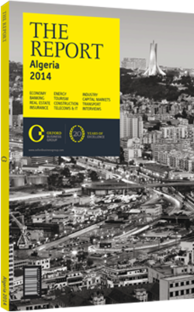A new industrial zone in El Kseur advances the diversification agenda
The choice of Béjaïa as the location for a new petrochemicals plant and industrial zone was finalised in January 2014, a step forward for the government’s plan to invest in downstream energy as part of its broader goal of diversifying the economy. In that month, Hamou Ahmed Touhami, the governor of Béjaïa, a province on the coast east of Algiers, announced that the town of El Kseur had been selected as the site for what will be the country’s third-largest industrial zone, spread over 250 ha. Led by state-owned oil firm Sonatrach, the project is expected to create at least 3000 local jobs and be commissioned in 2018, according to Touhami.
Proximity To Port
The facility will initially use liquid petroleum gas as its feedstock. Authorities have not yet said which petrochemicals will be produced, but local media report that 60% of its output will be shipped to overseas markets. The nearby port of Béjaïa will be upgraded to handle the new traffic.
El Kseur’s proximity to the port at Béjaïa may have helped to secure its bid to host the facility, given the extensive export infrastructure that is already in place. The city – one of two sites considered, according to reports in the local media – is less than an hour’s drive from the port and its oil terminal, as well as close to an oil pipeline and railroad bisecting the area.
Although a price tag has not yet been announced, investment opportunities are expected to be significant. For the construction phase specifically, Sonatrach’s representatives said they plan to use contractors wherever possible to develop the project.
The Broader Plan
The petrochemicals complex at Béjaïa will be the country’s third, joining Skikda on the eastern coastline and Arzew on the western side. Béjaïa lies between those two sites, which also host oil refineries and liquefied natural gas export facilities.
The development of a petrochemicals industry is in line with Sonatrach’s goal to support more general expansion of downstream activities. In 2012 the company said it would invest €58.8bn by 2017 in boosting refinery capacity and expanding upstream exploration activities. Plans include building five new refineries that would add 30m tonnes of capacity, more than doubling the existing limit of 22m tonnes.
Developing a local value chain will be key as the oil fields mature. The country’s economic well-being relies heavily on the energy sector, with hydrocarbons accounting for an estimated 97% of exports, 70% of budget receipts and 37% of GDP. Yet its oil production has declined in recent years, falling from a peak of around 1.97m barrels per day (bpd) in 2007 to 1.76m bpd in 2013, a 10.4% drop, according to the US Energy Information Administration.
The prospect of economic diversification and value-added exports make petrochemicals a particularly appealing segment for expansion. The segment’s output stood at around 320,000 tonnes in 2011, down from about 367,000 tonnes in 2010. In tonnage terms, the main products are methanol, liquid nitrogen and helium – the latter the result of a joint venture between Sonatrach and Germany’s Linde at Arzew. Also produced are resins, PVC and ethylene.
Fertiliser
One focus of recent years has been fertiliser, which offers large potential value-added revenues given rising global demand. In 2012, the government announced a plan to build three new fertiliser units by 2020. One prominent project of recent years has been Sonatrach’s Sorfert joint venture with Egypt’s Orascom Construction Industries, which in the summer of 2013 opened a fertiliser factory using natural gas feedstock at Arzew. With annual output of 800,000 tonnes of ammonia and 1.2m tonnes of urea, it is to serve both export and domestic markets. A similar factory is being built in a joint venture with Oman’s Suhail Bahwan.
Processing natural resources at home has been a top policy priority in the past few years, and the development of Béjaïa’s new petrochemicals complex is an encouraging step forward. Delivering projects on deadline has been problematic in the past, but once the project is completed, Algeria will be able to buffer itself better against price volatility on international markets.
You have reached the limit of premium articles you can view for free.
Choose from the options below to purchase print or digital editions of our Reports. You can also purchase a website subscription giving you unlimited access to all of our Reports online for 12 months.
If you have already purchased this Report or have a website subscription, please login to continue.

